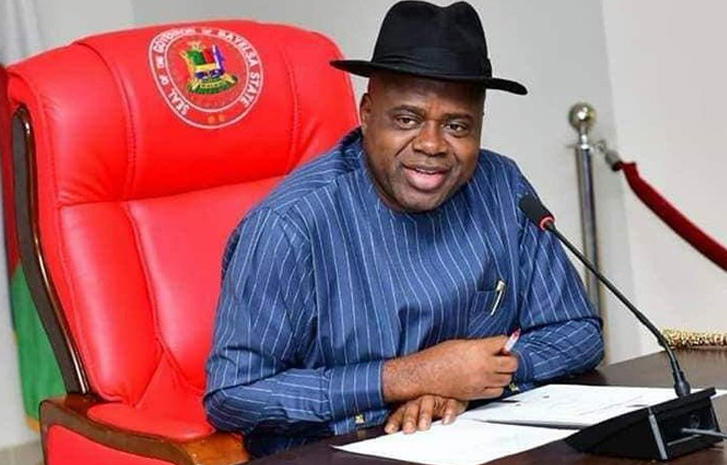Gov. Douye Diri of Bayelsa has called for clarity in the definition of host communities in the recently passed Petroleum Industry Bill (PIB) to avoid potential conflicts.
The bill, which was passed into law recently by the senate, is the first in a series of long awaited petroleum industry laws designed to reform the Nigerian oil and gas industry.
The PIB is an omnibus law, meant to regulate the entire sphere of the industry and repeal all current existing oil and gas legislation.
It struggled to see the light of day in spite of its introduction to the National Assembly over 16 years ago.
Diri, who spoke on a Channel’s Television breakfast current affairs programme said that three per cent of oil revenue for host communities who suffered devastating effects of exploration and exploitation activities was grossly inadequate and called for an upward review.
He said that prior to Monday’s meeting of the southern states governors in Lagos, the states had been in consultation with relevant stakeholders on their position, which he said was a minimum of 10 per cent of oil revenue to oil producing communities.
According to him, it is unacceptable that a provision of 30 per cent profit of the Nigerian National Petroleum Corporation was inserted in the controversial bill for “frontier exploration” in areas that were not clearly specified.
Diri frowned at the definition of oil producing communities and host communities to include areas where pipelines were laid.
He called for a reversal of such proposal, saying it was a time bomb that if not properly addressed, could create avoidable crises.
The governor restated his commitment and that of his colleagues in the Southern Governors Forum to continuous dialogue to resolve issues that bordered on challenges faced by oil producing communities and states.
Responding to a question on open grazing, Diri described cattle rearing as a private business that the states had power to regulate, stressing that there was no going back on the ban of open grazing in Bayelsa, which he said was no longer sustainable.
He stated that the ban was in force in the state since he assented to the bill on March 11, 2021.
On the issue of the governors’ resolve that the president of the country should emerge from the South in 2023, he said although it was a political decision that required consultations and lobby, a president of Southern extraction in the next election would encourage peaceful coexistence.
“Governors did not wait until now to speak on the PIB. Speaking on behalf of my state, we had a position and it was made very clear during the public hearings.
“It is unthinkable and total injustice to allot three per cent to oil producing communities. We stated our position of 10 per cent.
“The definition of host communities or oil producing communities is also worrisome.
“Oil producing communities should not be where pipelines are laid. If the issue of what an oil producing community is, is not addressed, it is a time bomb that can explode.
“The issue of cattle grazing is a commercial, private activity. I do not see why we needed anybody’s opinion to regulate a private activity.
“We have a duty to protect our people. That is why we have state assemblies. In Bayelsa, it already came into effect since March 11, 2021. Open grazing is no longer sustainable. We need to stop it.
“On the issue of Southern presidency, the governors will have to engage in lobby.
“But it is only natural justice for the south to produce the president after President Buhari’s eight years. It is not constitutional but a gentleman’s agreement to encourage cohesion and peaceful coexistence,” Diri said.
Diri said although COVID-19 slowed things down globally, his administration had made appreciable progress in road and infrastructure development, urban renewal of the state capital, Yenagoa, as well as in ensuring peace, unity and reconciliation within the last 16 months of being in office.
He assured that his administration was committed to development of every sector of the state’s economy and called for support from Bayelsa people.
(NAN)



